8 Benefits Of MCT Oil And The Best Ways To Use It In A Keto Diet
A supplement oil that is gaining a cult following for its effectiveness in weight loss.

Image: Shutterstock
Medium-chain triglyceridesi A kind of lipid found in humans. (MCTs) are found in commonly available oils. MCT oil is a supplement that has these types of fats. This supplement is popular for its purported benefits in weight management at a fast rate.
But how else can MCT oil benefit you? In this article, we look at expert opinions about the various benefits of MCT oil, its possible risks, and how you can use it with a keto diet. Continue reading.
 Know Your Ingredient: MCT Oil
Know Your Ingredient: MCT OilWhat Is It?
A supplement that contains a type of fat called medium-chain triglycerides.
What Are Its Benefits?
Promotes heart health, improves energy levels, and aids in weight loss.
Who Can Use It?
All except those who have essential fatty acid deficiency.
How Often?
Around 4 to 7 tablespoons a day.
Caution
Excess consumption may cause abdominal pain, nausea, vomiting. Consult a doctor in case of any serious discomfort.
In This Article
MCTs, The Types, And MCT Oil
Scientifically speaking, MCTs (medium-chain triglycerides) are fatty acids with chains of about 6-12 carbon atoms.
Thus, their digestion is relatively easier than long-chain fatty acids.
Ana Reisdorf, a registered dietitian, talks about the different types of MCT oils.
There are 4 main types of MCT oils. These are:
- Caproic acid (6 carbon molecules): has a very strong smell, and is not usually used in supplements or food
- Caprylic acid (8 carbon molecules): used by the body to create ketones, also has antibacterial properties
- Capric acid (10 carbon molecules): antibacterial and immune-boosting properties, effectively used for energy
- Lauric acid (12 carbon molecules): the main MCT found in coconut oil, has antibacterial properties, may help improve insulin sensitivity.
Of these, the most common ones that you can find in use are the caproic and caprylic acids. The natural sources of MCTs are human breast milk, oils like coconut and palm, and full-fat cow or goat milk.
These food sources generally have both MCTs and long-chain triglycerides, both of which are saturated fatty acids that are healthy fats. It is important to note here that no natural source has 100% MCT content. For example, coconut oil has a maximum of only 54% of MCT content. MCT oil is made by processing palm and coconut oils.
Ms. Reisdorf says, “Coconut oil contains mostly lauric acid. Most MCT oils on the market are caprylic and capric acids; these are the ones that are best for helping you get into ketosis.”
 Quick Tip
Quick TipHow many body functions can one oil supplement affect? Read on to learn about the health benefits of MCT oil.
Key Takeaways
- MCT oil may help reduce weight, maintain heart health, and boost energy levels.
- Human breast milk, coconut and palm oils, and full-fat cow or goat milk are natural sources of MCTs.
- You can mix MCT oil with your daily coffee or your pre-workout smoothie.
- Overconsumption of MCTs may increase cholesterol levels and fat buildup in the liver.
Science-Based Health Benefits Of MCT Oil
The right kind of fatty acids can affect a lot of body functions. MCTs are that kind because they:
1. May Be Healthy For The Heart

Medium-chain triglycerides are easily absorbed into the bloodstream and go directly to the liver. Due to this property, MCT oil has been shown to reduce bad cholesterol (LDLsi Low-density lipoprotein; a type of unhealthy cholesterol as high levels of it can cause increase the cholesterol level in the arteries. ) and increase the levels of HDL cholesterol (which are good for the heart) (1).
Felicia Newell, the Medical Advisor for Medical Solutions BCN, says, “MCTs have a number of properties that may be beneficial in preventing atherosclerosis (aka the hardening of the arteries), which can lead to heart disease.”
There is also scientific evidence showing that MCTs can help reduce inflammation, thereby protecting the heart muscles (2).
2. May Help In Regulating Diabetes
Dr. Mahmud Kara, the founder of KaraMD, says this about the impact of MCTs on diabetes management.
- “MCTs can help the body make more ketones compared to long-chain forms, which are important for people with diabetes.
- Ketones can help regulate insulin levels and break down food molecules in the body that can then be used for energy.
- Because it is more easily absorbed, MCT oil can also help people who struggle with nutrient absorption due to issues with the pancreas (the primary organ affected by diabetes).
- Furthermore, MCT oil may indirectly help people with diabetes because the foods that are high in MCT oil can help us feel fuller faster, which in turn can prevent overeating and unnecessary spikes in blood sugar levels.”
3. May Help Improve Energy Levels

Like Dr. Kara states, ketones being produced in the body improve energy levels. Mitochondria are the powerhouse of the cell. One study has particularly found how MCTs improve the metabolism of mitochondria, increasing energy production in the cells and improving your body’s energy levels (3).
4. May Help Reduce Fat Build-Up
Peptide YY and leptin are two hormones responsible for satiety after a meal. A study proved that MCTs increase the production of these two hormones, thereby increasing the feeling of fullness and helping in appetite control. MCTs also reduce fat build-up in the body, ideal for an athlete as it improves athletic performance by improving energy levels (4).
5. MCT Oil May Promote Weight Loss

Studies have shown that MCTs are absorbed directly into the bloodstream and do not need to be digested (5). Instead, they go directly to the liver, adding no extra fatty layer to tissues. The improved energy levels and reduced fat build-up are a perfect combination when one is looking to reduce weight.
“MCT oil is increasingly popular among athletes, as these medium chains are more easily absorbed, can contribute to weight loss, and are a high-quality energy source,” says Anthony Puopolo, the Chief Medical Officer at RexMD.
6. May Help Reduce Inflammation
Dr. Kara has this to say about how MCTs affect the symptoms of Alzheimer’s diseasei also known as senile dementia. It is a condition where people lose their memory. and Parkinson’s disease.
“Chronic inflammation is the root of all evil. Many health issues such as heart disease, cancer, diabetes, and cognitive disorders like dementiai a condition where humans lose control over their abilities to remember, speak, solve problems and others which interferes with their daily life. and Alzheimer’s, start with inflammation. MCT oil can serve as an anti-inflammatory because it can help break down pro-inflammatory cytokines.”
A study reported an improvement in brain function in people with Alzheimer’s with a dosage of 30g of MCT oil per day (6). It might also be beneficial for people with epilepsy.
7. May Prevent Oxidative Damage
MCT oil packs a punch that goes beyond its famed energy-boosting properties. With its antioxidant properties, it combats free radicals, reduces the risk associated with oxidative stress, and protects your body against cellular damage (7).
A recent study on brain cells found that MCTs can directly boost antioxidant capabilities, lower stress in the cells, and improve cognitive function (7). Thus, adding a dash of MCT oil to your daily diet may not just fuel your body but also promote overall health and well-being.
8. May Improve Skin Health
MCT oil contributes to better skin health by providing a natural source of hydration and protecting the skin against environmental stressors. Its antimicrobial properties help manage skin issues, such as acne and fungal infections, while its anti-inflammatory properties may help minimize redness and irritation. When applied topically, MCT oil is said to leave the skin feeling soft and nourished, making it a popular choice in skin care routines. However, more research is needed to fully understand its skin care benefits.
How can you best extract these benefits? The next segment talks about using MCT oil in a keto diet.
How To Use MCT Oil In A Keto Diet

Incorporating MCT oil into your diet is pretty simple. The oil remains fluid at room temperature, and hence, you can simply mix it into any meal or beverage you consume.
Remember that MCT oil is not suitable for cooking because the molecules break down at higher temperatures.
Some ways of using MCT oil in your keto diet are:
- Mixing it into your daily coffee
- Using it along with olive/other oils while making salads
- Blending it in with your smoothie or with your pre-workout beverage
If you’re exploring ways to optimize your morning routine, try bulletproof coffee, which is a blend of coffee, MCT oil, and butter—designed to help increase focus and promote fat burning.
As seen in the benefits, MCT oil has the characteristic of promoting ketone production. Hence, it is a better alternative for you to include in your ketogenic diet.
About the dosage, “There isn’t a specific recommended dosage. Most products recommend 1-3 tablespoons per day. Start with ½ a tablespoon as MCTs can cause digestive problems if you are not used to them.” says Ms. Reisdorf.
 Trivia
TriviaMCT Oil Risks: Could MCT Oil Be Bad For You?

Ms. Newell has this to say about the possible short-term effects of using MCT oils in excess.
“In general, it is safe to use MCT oil in moderate amounts as part of your diet. However, long-term and excessive use could have risks. Some of the negative potential health impacts include:
- As with any other fat, it is still high in calories. Consuming more calories than your body naturally needs daily can lead to weight gain.
- Large amounts of saturated fat may raise harmful cholesterol levels.
- MCTs could stimulate the release of hunger hormones, which makes you overeat.
- Large doses could lead to fat buildup in the liver.”
Ms. Reisdorf agrees, saying, “One of the major short-term risks of MCT oil is diarrhea or gas that can be caused by taking too much.” - It may lead to possible gastrointestinal issues like cramping (8).
- The oil may not be suitable for babies. A case study of a premature baby showed that the prolonged use of MCT may lead to a decrease in carnitine, which is an amino acid derivative that helps the body turn fat into energy (9).
- An animal study also found that MCT oil may increase your risk of developing allergies to certain foods by affecting their absorption (10).
Conclusion
Medium chain triglyceride oils are beneficial overall when you wish to get on a proper keto diet. They contribute to major fitness goals like weight loss, fat burning, and having higher energy levels without consuming too many fatty foods. They even contribute to keeping your heart healthy and your cholesterol and blood sugar levels in check.
You can even add them to any food you wish to eat on your diet. Just remember not to heat MCT oils. That said, the side effects of these oils aren’t too many (and only short-term). Hence, you can start incorporating these oils in your diet today.
Frequently Asked Questions
Can you take MCT oil every day?
Once your body adapts to the MCT oil, you can take it daily. However, a maximum daily dose of 42 grams is considered safe (11).
What is the best time to take MCT oil?
You can take MCT oil in the mornings, before your first meal.
Is MCT oil good before bed?
The intake of MCT oil too late in the day may cause trouble with sleep. Hence, avoid it in the evening.
Does MCT oil affect kidneys?
According to Jennifer Schlette, a Registered Dietitian, “A diet with MCT oil had significantly less kidney stone formation and improved kidney function than other diets. Since the 1960s, doctors have recommended medium-chain triglyceride (MCT) oils such as coconut oil for patients who are non-responsive to prescription drugs or unable to undergo surgery. The results were positive regarding using this oil in renal failure and kidney disease.”
Illustration: Benefits Of MCT Oil And The Best Ways To Use It In A Keto Diet

Image: Stable Diffusion/StyleCraze Design Team
Dive into this captivating video that unravels the remarkable advantages of MCT Oil. Discover its potential to boost energy, aid weight loss, and enhance cognitive function. Check it out now!
References
Articles on StyleCraze are backed by verified information from peer-reviewed and academic research papers, reputed organizations, research institutions, and medical associations to ensure accuracy and relevance. Read our editorial policy to learn more.
- Medium-Chain Triglycerides Lower Blood Lipids and Body Weight in Streptozotocin-Induced Type 2 Diabetes Rats
https://www.ncbi.nlm.nih.gov/labs/pmc/articles/PMC6115836/ - Medium Chain Triglyceride (MCT) Oil Affects the Immunophenotype via Reprogramming of Mitochondrial Respiration in Murine Macrophages
https://www.ncbi.nlm.nih.gov/labs/pmc/articles/PMC6915711/ - Medium Chain Triglycerides enhances exercise endurance through the increased mitochondrial biogenesis and metabolism
https://www.ncbi.nlm.nih.gov/labs/pmc/articles/PMC5805166/ - Impact of medium and long chain triglycerides consumption on appetite and food intake in overweight men
https://www.ncbi.nlm.nih.gov/labs/pmc/articles/PMC4192077/ - Physiological Effects of Medium-Chain Triglycerides: Potential Agents in the Prevention of Obesity
https://linkinghub.elsevier.com/retrieve/pii/S0022316622149254 - Can ketones compensate for deteriorating brain glucose uptake during aging? Implications for the risk and treatment of Alzheimer’s disease
https://pubmed.ncbi.nlm.nih.gov/26766547/ - Applications of Medium-Chain Triglycerides in Foods
https://www.frontiersin.org/articles/10.3389/fnut.2022.802805 - The effect of medium chain triglycerides on time to nutritional ketosis and symptoms of keto-induction in healthy adults: A randomised controlled clinical trial
https://pmc.ncbi.nlm.nih.gov/articles/PMC5987302/ - A preterm infant with secondary carnitine deficiency due to MCT formula–effective treatment of L-carnitine
https://pubmed.ncbi.nlm.nih.gov/8036622/ - Medium chain triglycerides (MCT) formulas in paediatric and allergological practice
https://pmc.ncbi.nlm.nih.gov/articles/PMC5209465/ - Use of medium chain triglyceride (MCT) oil in subjects with Alzheimer’s disease: A randomized double‐blind placebo‐controlled crossover study with an open‐label extension
https://www.ncbi.nlm.nih.gov/pmc/articles/PMC8919247/
Read full bio of Rowinda Dimech
Read full bio of Sindhu Koganti
Read full bio of Ravi Teja Tadimalla
Read full bio of Moksha Gandhi







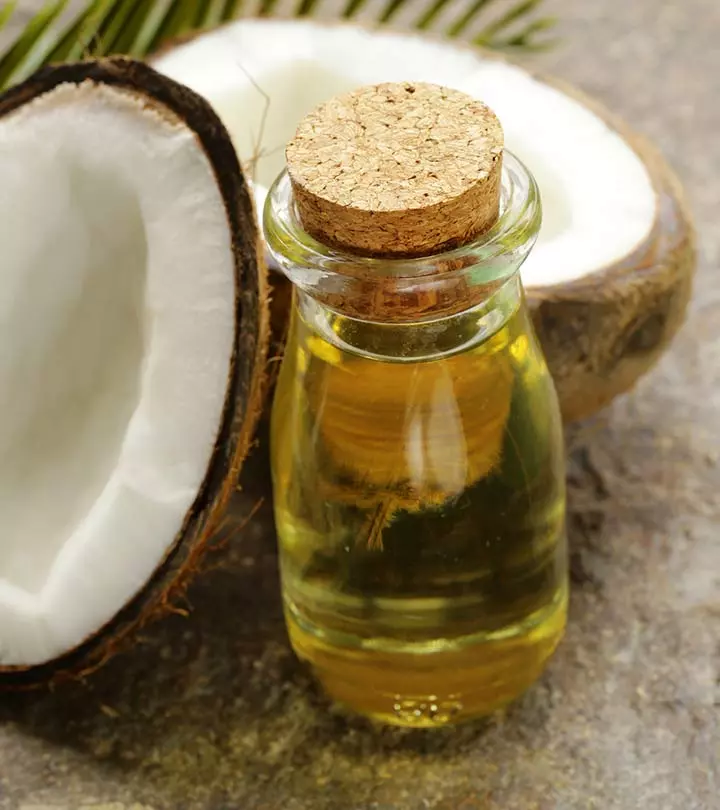
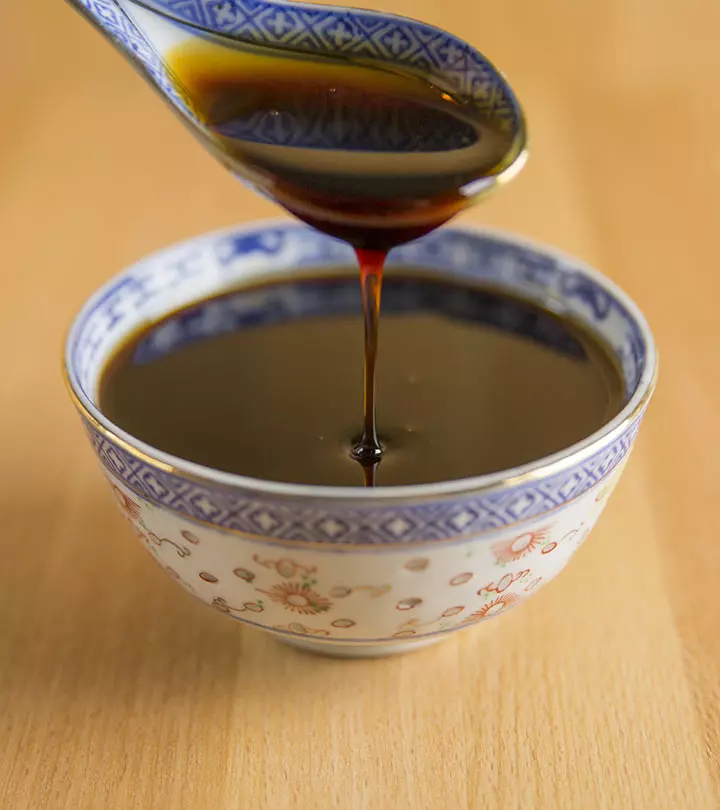



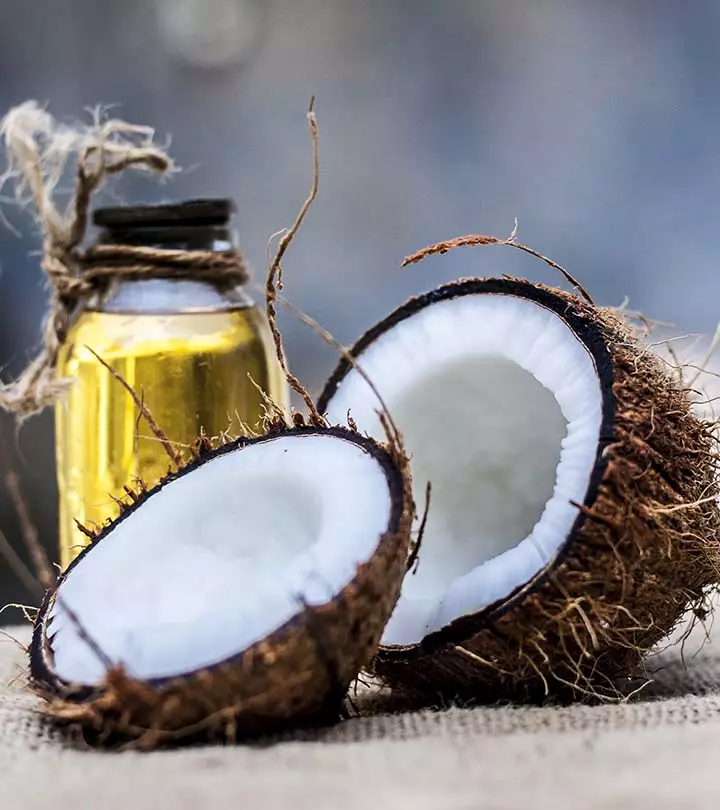



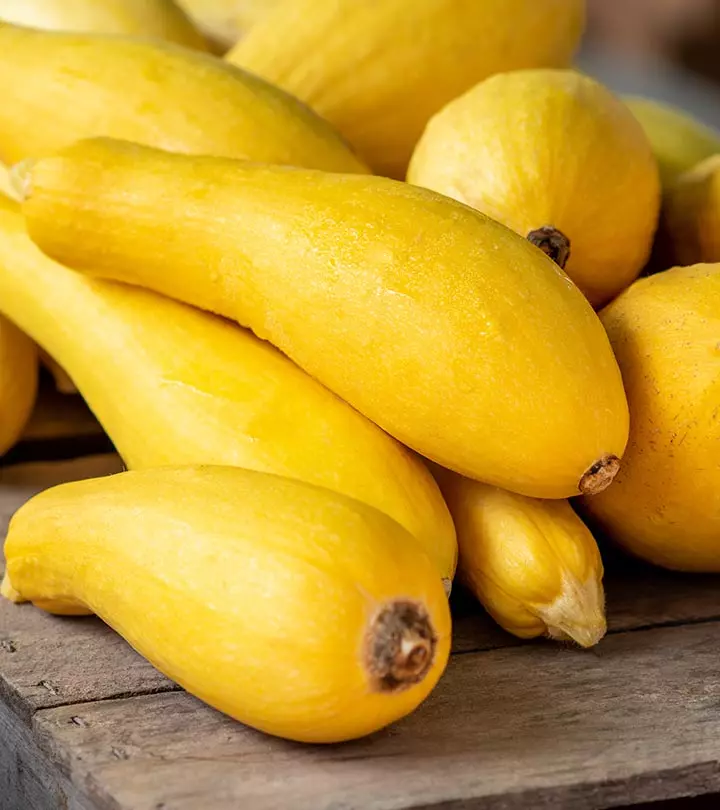


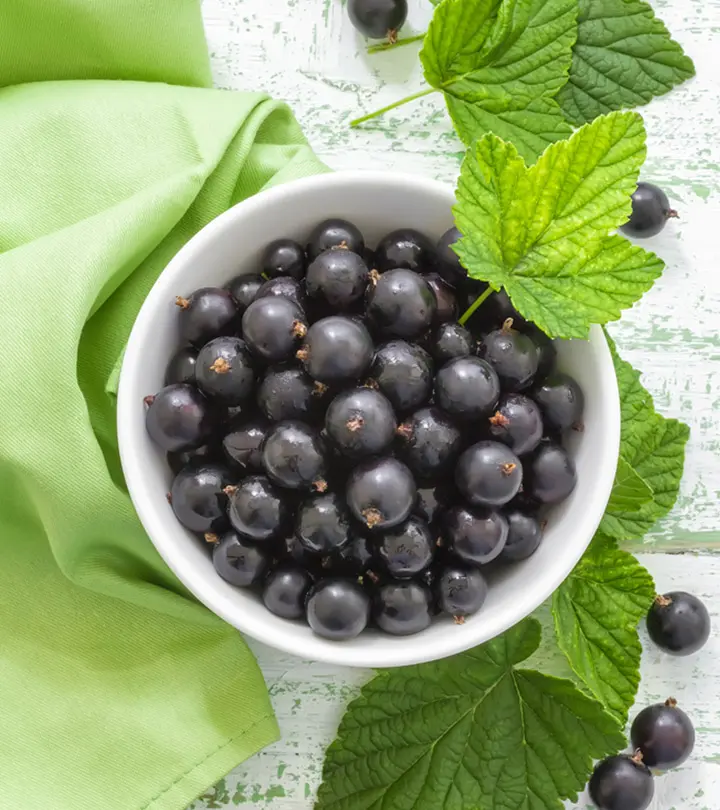



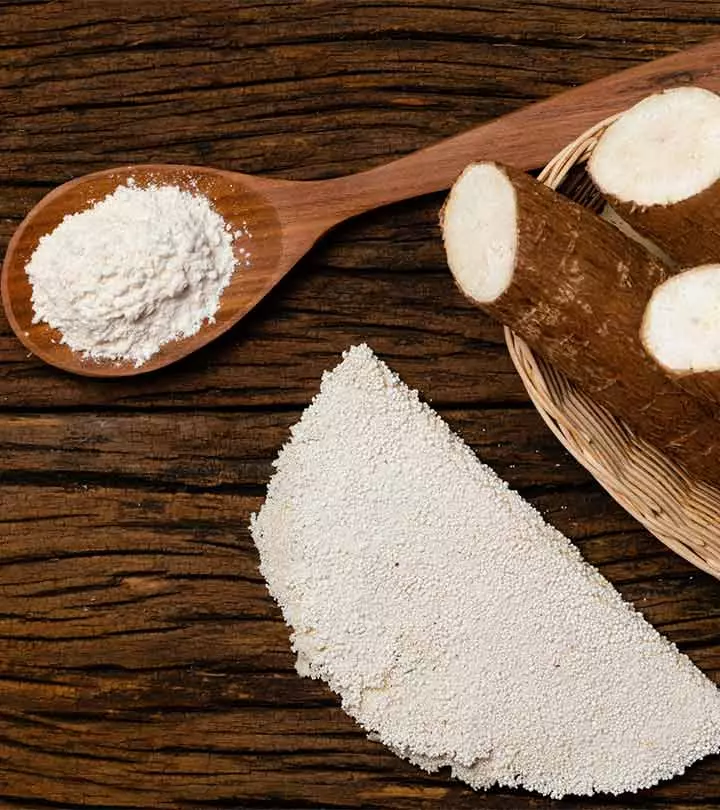
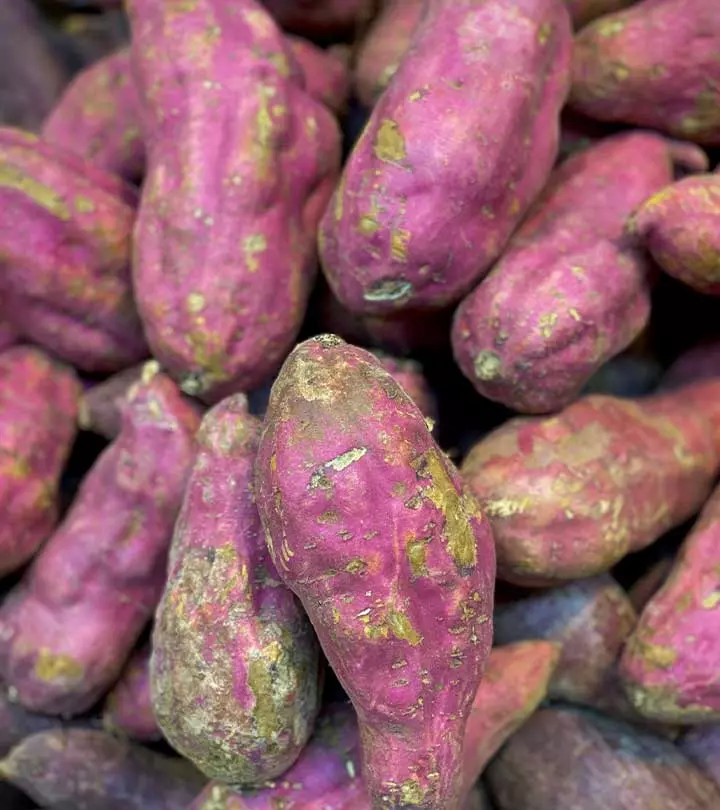
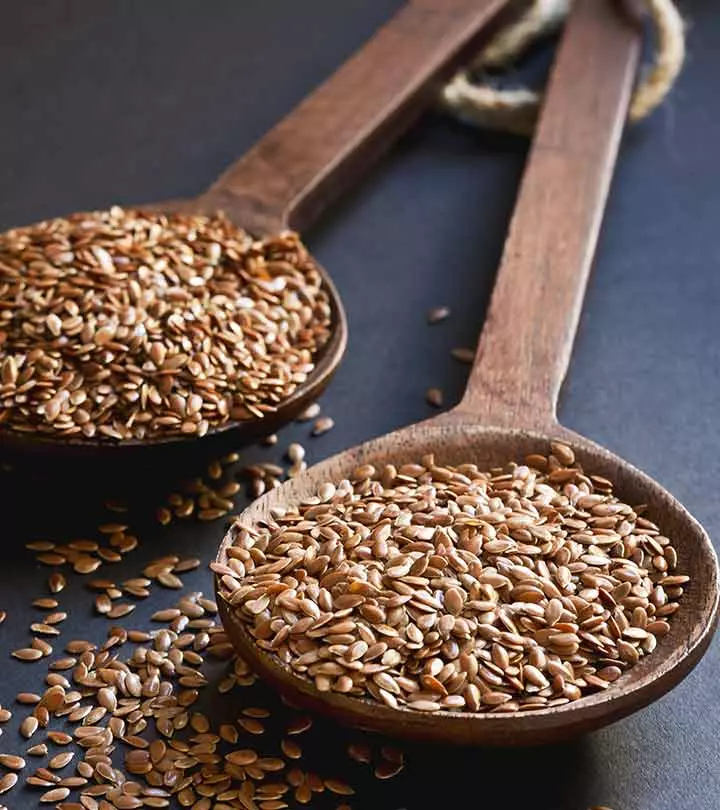


Community Experiences
Join the conversation and become a part of our empowering community! Share your stories, experiences, and insights to connect with other beauty, lifestyle, and health enthusiasts.